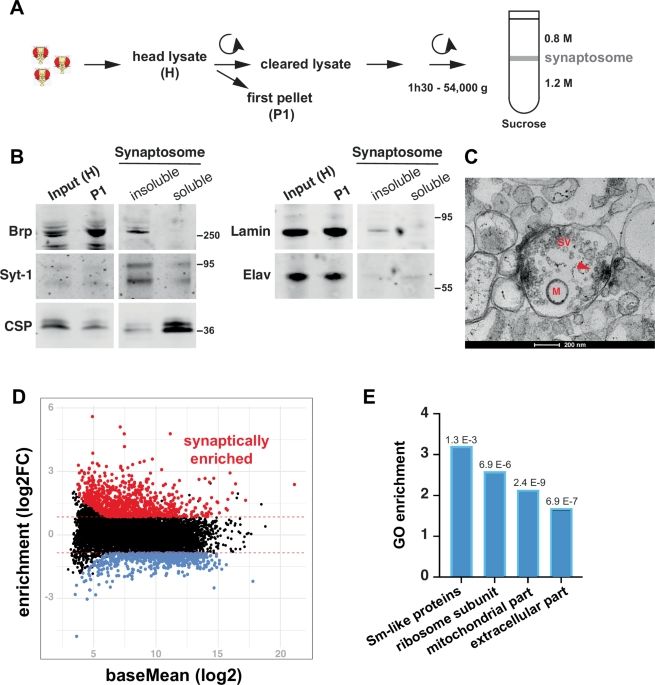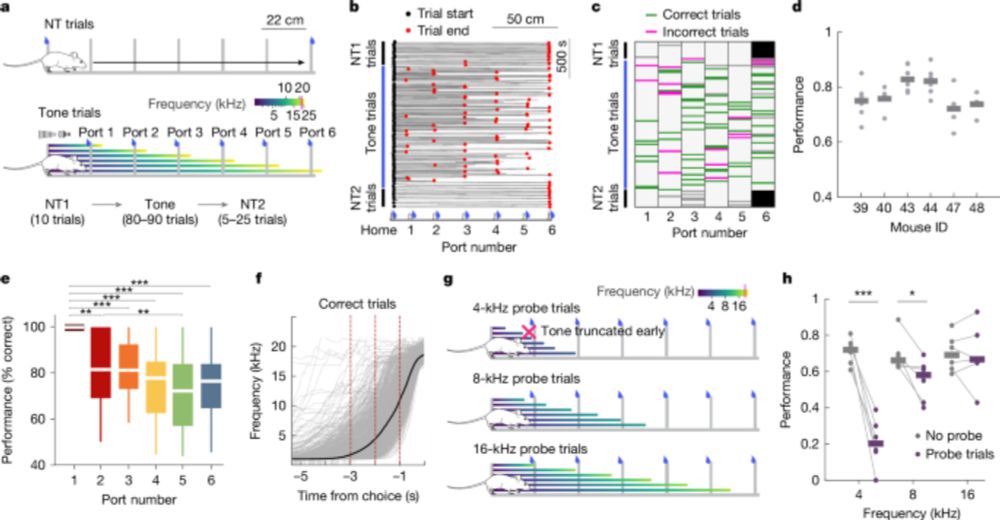Bridging computation and representation in associative learning:
gershmanlab.com/pubs/Gershma...
Hessam Akhlaghpour
@thehessam.bsky.social
Check out my blog: https://lifeiscomputation.com and my personal website: https://www.akhlaghpour.info
@thehessam.bsky.social
Check out my blog: https://lifeiscomputation.com and my personal website: https://www.akhlaghpour.info
Bridging computation and representation in associative learning:
gershmanlab.com/pubs/Gershma...

Just out by Ellen Lau: How single-neuron computation matters for cognitive neuroscience doi.org/10.21428/8e6...
02.04.2025 05:54 — 👍 7 🔁 1 💬 0 📌 1Future Tense Fiction Magazine asked me to write a short scifi story for them, which would be paired with a response from a scientist.
Inspired by work from Cristopher Moore, @thehessam.bsky.social & @lenoreblum.bsky.social I wrote "Coda"
And Cristopher Moore wrote the response essay! Links below:

From the Besse's lab.
#RNAbiology #RNAlocalization #spatialbiology
www.nature.com/articles/s41...
Feels weird to promote science right now but here’s a new review/opinion piece from the lab where we outline new insights about how Arc mediates long lasting synaptic plasticity and memory formation. 🧪🧠 kwnsfk27.r.eu-west-1.awstrack.me/L0/https:%2F...
17.02.2025 00:17 — 👍 126 🔁 16 💬 9 📌 0
To add to all the other relevant papers mentioned in the comments: Gaby Maimon, my current advisor, from his grad school years
www.cell.com/neuron/fullt...

It’s an incredible feeling to see something you’ve poured your heart into come to life. This work was born from my curiosity about hippocampal “cognitive tuning.”
Our interpretation of the environment depends on our actions, constantly evolving as we pursue our goals
www.nature.com/articles/s41...
As far as I’m aware it’s still an unproven conjecture
09.01.2025 05:31 — 👍 2 🔁 0 💬 0 📌 0That’s super exciting!! Congrats!!
08.01.2025 20:04 — 👍 1 🔁 0 💬 1 📌 0I'm thrilled to be opening my own lab this Fall at the @maxplanck.de MPI for Brain Research in Frankfurt. The lab is going to investigate the neuronal and genetic underpinnings of behavioral evolution. We are hiring on all levels. Don't hesitate to share widely and reach out if interested.
08.01.2025 16:53 — 👍 141 🔁 50 💬 21 📌 2unbounded =/= infinite
08.12.2024 02:49 — 👍 1 🔁 0 💬 1 📌 0Exactly. Same with TMs and memory. At any given moment it uses a finite amount of memory. Any computation requires finite amount of resources to complete. So where is the difference in terms of being realistic?
08.12.2024 02:45 — 👍 0 🔁 0 💬 2 📌 0Would you say the same about unbounded time and energy? Because RNNs and finite state machines are unbounded in time and energy. Are they unrealistic idealizations too?
08.12.2024 02:29 — 👍 1 🔁 0 💬 1 📌 0Had you said memory expansion in RNNs is expansion in precision, that would be a totally valid response. Unbounded precision is fine, just like unbounded tape length is fine. But the problem with those models is something else - not the unboundedness of memory. Does that make sense? 2/2
08.12.2024 02:11 — 👍 0 🔁 0 💬 1 📌 0The only way I can understand “RNN with unbounded memory” is as “RNN with unbounded precision”. I cannot see how an RNN can use unbounded number of neurons, because # neurons is intrinsically bounded as part of the system’s dynamics (just like FSA is intrinsically memory bounded). 1/2
08.12.2024 02:11 — 👍 1 🔁 0 💬 1 📌 0There is this paper that discusses one part of your question. doi.org/10.1016/j.nl...
But I really don’t know. 100 years ago, when people were proposing genetic information is stored as atomic arrangement in molecules, they had no idea about readout (polymerases, ribosomes, etc).
Yes, that is still the subject. It sounds like you are claiming that RNNs are universal because you can build an RNN that simulates the physical memory-bounded digital computer (say the one on my desk). You can use the same exact argument to say finite state automata are universal, which is wrong.
08.12.2024 00:08 — 👍 0 🔁 0 💬 1 📌 0(Relatedly, Dijkstra once said "Computer science is no more about computers than astronomy is about telescopes.")
RNNs are supposed to be an abstract system of computation. Each RNN solves a certain input output function. The comparison should be to other systems of computation. 2/2
I think the last statement is misleading. It depends on how you define "digital computer". The way you are treating it here is as a device that runs programs, not as an abstract system for computation. In that case it is meaningless to assign a scope of solvable functions to that device.
1/3
the state of an RNN cannot be described independent of the number of neurons. In fact, if you assume bounded precision, you can describe the RNNs progression in time as a string of fixed (unchanging) length. This is not the case for, say, combinatory logic or any other universal system. 3/3
07.12.2024 22:10 — 👍 2 🔁 0 💬 1 📌 0The description of a program (or the description of its state at any time during its progression) can be specified as an arbitrary length string. One would need to add memory *during* computation (as part of the rules of the system) in order to execute it properly.
In contrast, 2/3
In the same sense that you can "expand" memory of a finite state automata by adding more states?
There is a fundamental difference between that and memory expansion in computer programs. The difference is that a progam's state can be described independent of the available memory. 1/3
How are you imagining memory expansion in RNNs? Through increasing precision (like the 1990s models that suffer from structural stability)? Or by increasing number or neurons? If you can clarify this, maybe I’ll be able to convey my point better.
07.12.2024 20:47 — 👍 3 🔁 0 💬 1 📌 0To elaborate with an example: If Moore's 1998 conjecture is wrong and physically realizable RNNs are universal, then RNNs would be a useful system for organisms to have and tweak/learn/evolve upon. That doesn't mean a specifically universal RNN (capable of running any TM) would be advantageous. 3/3
03.12.2024 04:33 — 👍 2 🔁 0 💬 1 📌 0What kinds of problems are in the reach of biological organisms? What kind of computational problems are solvable through evolution, or learning, or some other biological process? Having a language/system with the scope of *all solvable problems* would be adaptive / advantageous. 2/3
03.12.2024 04:33 — 👍 2 🔁 0 💬 1 📌 0Thanks for engaging with these ideas and sharing it here!
One point (potential misunderstanding) is about point 2 that you raised. I'm not saying that an individual organism would necessarily benefit from the capability of universal computation. My argument is about scope, not instances. 1/3

Where does pattern come from inside cells? in this revised preprint, @aralbright.bsky.social
Shows that regionalization of mRNA in a Stentor cell depends on dynein motors and the microtubule cytoskeleton
doi.org/10.1101/2023...
@jonathannajenson.bsky.social and I will discuss @thehessam.bsky.social's work in the next session of our International Memory Reading Group
02.12.2024 16:37 — 👍 8 🔁 3 💬 1 📌 0@thehessam.bsky.social speculates that universal computation implemented by RNA is behind memory and cognition. It's a cool idea, though probably wrong. 1/
02.12.2024 16:26 — 👍 11 🔁 2 💬 1 📌 0I admire trainees stepping up like this to talk about the big questions. @thehessam.bsky.social does a terrific job here talking about the nature of memory storage (synaptic vs not).
02.12.2024 06:42 — 👍 26 🔁 6 💬 4 📌 0